People
Director
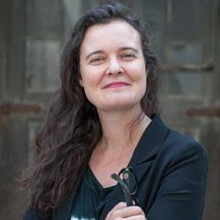
Professor of Buddhist Studies and Chinese Religions, Dept. of Asian and North African Studies
Scientific Committee
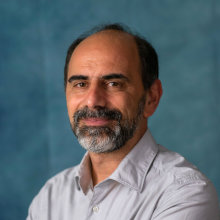
Shaul Bassi
Professor of English and Environmental Humanities, Dept. of Linguistics and Comparative Cultural Studies
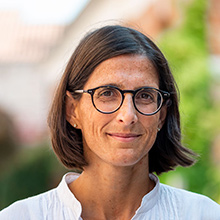
Enrica De Cian
Professor in Environmental Economics, Dept.of Economics, ERC Starting Grant grantee with the project ENERGYA – Energy use for Adaptation
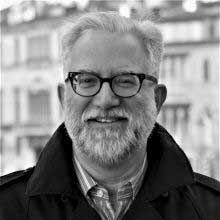
David Gentilcore
Professor of Early Modern History and PI of the European Research Council advanced grant The Water Cultures of Italy, 1500-1900 (grant agreement 833834), Dept. of Humanities
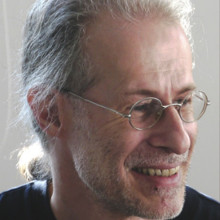
Francesco Gonella
Professor of Physics, Dept. of Molecular Sciences and Nanosystems
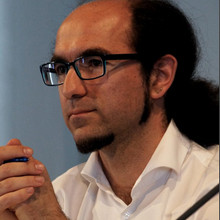
Pietro Daniel Omodeo
Cultural Historian of Science and Professor of Historical Epistemology, PI of the European Research Council consolidator project "Institutions and Metaphysics of Cosmology in the Epistemic Networks of Seventeenth-Century Europe" (grant agreement 725883.)
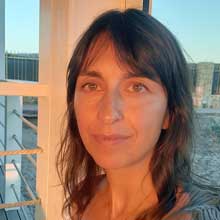
Roberta Raffaetà
Deputy director
PI of the European Research Council advanced grant HealthXCross (grant agreement GA n. 949742), Associate Professor of Cultural Anthropology, Dept. of Philosophy and Cultural Heritage

Fabiana Zollo
Head of the Laboratory of Data Science for Society, Dept. of Environmental Sciences, Informatics and Statistics
International Advisory Board
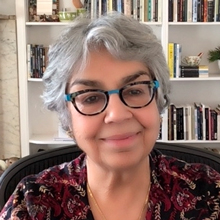
Una Chaudhuri
Collegiate Professor and Professor of English, Drama, and Environmental Studies at New York University
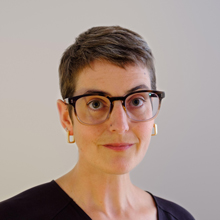
Sarah Davies
Professor of Technosciences, Materiality, & Digital Cultures at the University of Vienna
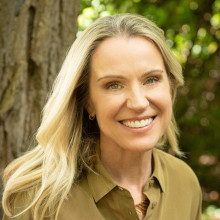
Anne Rademacher
Professor of Environmental Studies at New York University
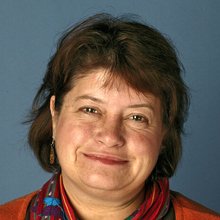
Veronica Strang
Professor of Anthropology and Fellow of the Academy of Social Sciences
Oxford University’s School of Anthropology and Museum Ethnography

Dr. Anna Katsman (External member)
Academic Director THE NEW INSTITUTE
Affiliated Faculty
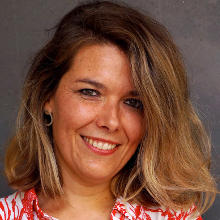
Cristina Baldacci
Associate Professor in History of Contemporary Art, Dept. of Philosophy and Cultural Heritage
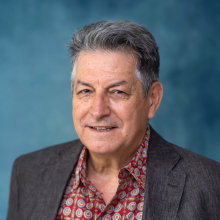
Eric Bou Maqueda
Full Professor of Iberian Studies at the Dept. of Linguistics and Comparative Cultural Studies
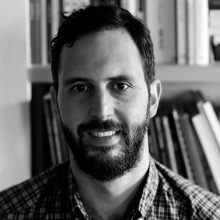
Daniele Brombal
Associate Professor at the Dept. of Asian and North African Studies
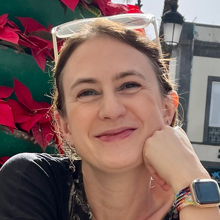
Helen Foxhall Forbes
Professor of Medieval History at the Dept. of Humanities
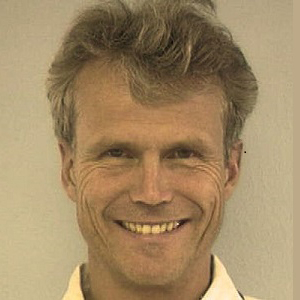
Steen Rasmussen
Professor in Physics at University of Southern Denmark and Director of the Center for Fundamental Living Technology (FLinT)
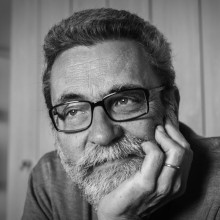
Massimo Warglien
Full Professor at the Dept. of Management
Research Fellows
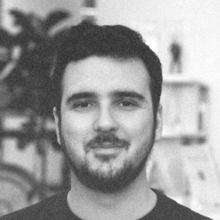
Pietro Consolandi
Research Fellow
Researcher, artist, and co-founder of Barena Bianca. His research investigates the interconnection between human beings, their more-than-human neighbours and the ecosystems they belong to, from a political, ecological and sentimental point of view. Within NICHE he studies the possibility of implementing Rights of Nature in the Lagoon of Venice, also joining forces with other European and global initiatives working towards the same scope.
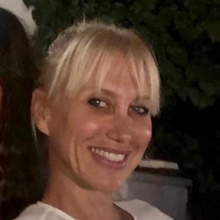
Silvia Francescon
Research Fellow
Is an expert in international environmental law. Her research is aimed at exploring the radical adherence of deep ecology and eco-centrism to the Buddha's thought, and - consequently - to re-imagine and imprint into action the idea of rights from a biocentric rather than anthropocentric perspective.
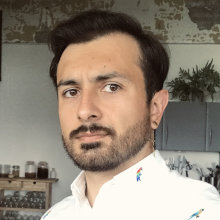
Emiliano Guaraldo
Research Fellow
Emiliano Guaraldo is a postdoctoral research fellow at NICHE. He earned his PhD in Italian Studies from the University of North Carolina, Chapel Hill, in 2019 with a dissertation focusing on the visual and literary representations of petroleum in the Italian context. As a researcher in the Environmental Humanities, his work seeks to understand the historical, aesthetic, and political dimensions of extractivism, planetarity, and toxicity within the transmedial imaginings of the Anthropocene. He is a member of the Ecological Art Practices research cluster and of the interdisciplinary research group Unruly Natures. Emiliano has been involved in teaching and research projects at the University of Virginia, the University of St. Gallen, the Free University of Bolzano. He is the editor of the forthcoming volume "Building Common Ground: Contemporary Visual Arts and Ecological Knowledges" (Edizioni Ca’ Foscari, 2023) and of "Italian Science Fiction and the Environmental Humanities" (Liverpool University Press, 2023; with Marco Malvestio and Daniel A. Finch-Race).
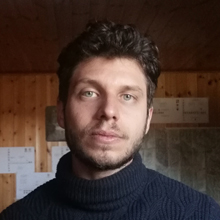
Nicola Martellozzo
Research Fellow
Anthropologist specialise in multi-species ethnography and environmental studies. His doctoral
ethnographic research concerned the cultural and ecological relationship between human community and forest in the Fiemme Valley, after the Vaia disaster. The author of several scientific journals, such as HAU: Journal of Ethnographic Theory, ANUAC, and Lagoonscapes, he is also member of the Groupe de Recherche en Education à l'Environnement et à la Nature at the University of Valle d'Aosta.
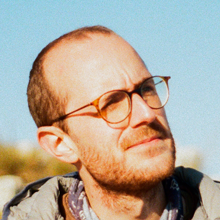
Gabriele Orlandi
Research Fellow
has been trained in the field of critical development studies (University of Turin) and in anthropology (EHESS - Paris' School for Advanced Studies in Social Sciences) and he has carried out fieldwork investigations in France, India, and Italy. In his doctoral research at Aix-Marseille University, he investigated processes and practices of modernity crafting in a valley of the Italian Western Alps. In 2022–2023, he was laureated by the Foundation "Maison des Sciences de l’Homme" for a comparative research project on eco-critical discourse analysis and forms of social stratification in the French, Swiss, and Italian Alps. During his research at NICHE, Gabriele will explore forms of multi-species governance and knowledge regimes in the Adamello Brenta Dolomites.

Giovanni Pellegrini
Research Fellow
Documentary film director, DOP, writer and producer. Before graduating in documentary filmmaking at Centro Sperimentale di Cinematografia, Pellegrini got a degree in history of navigation at Ca Foscari University and worked as a naturalistic guide in the Venetian lagoon. His works investigate the relationship between man and nature and have been screened and awarded at numerous international film festivals such as Locarno Film Festival, Venice Days, GFF San Francisco, HRFF San Sebastian, EFFA Melbourne, Visioni Italiane Bologna. In 2018 he founded the film production company Ginko Film. He currently lives and works in Venice, a city to which he has dedicated his last 3 films: "Aquagranda in crescendo" (Venice Days 2017), "City of sirens" (Cinemambiente Torino 2021), "Lagunaria" (Cinemambiente Torino 2023).
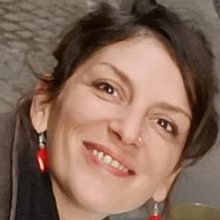
Amalia Rossi
Post-Doc Research Fellow
Amalia Rossi, sociologist and anthropologist, is Fellow Researcher at NICHE, within the research program titled “Interazione tra il buddismo e l'ambiente nel mondo moderno nel contesto dell'ecologia spirituale o religiosa”, directed by Professor Francesca Tarocco and co-funded by Unione Buddista Italiana. She earned her PhD in Cultural Anthropology at the University of Milan Bicocca and teaches Cultural Anthropology (B.A. in Painting and Visual arts) and Land Design-Ecosophy (Master in Art and Ecology) at the Nuova Accademia di Belle Arti of Milan (NABA). Amalia published widely in Italian and English in the fields of contemporary Buddhist studies, political ecology and the anthropology of social movements. She also worked for several years for EU agencies, GOs and NGOs in the field of international protection. In 2022 she published the monography: Eco-buddhismo. Monaci della foresta e paesaggi contesi in Thailandia (Meltemi Editore, Milano).
Former Research Fellows
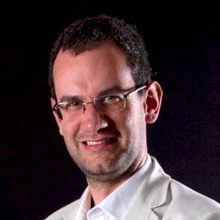
Krešimir Vuković
Research Fellow
K. Vuković obtained a doctorate in Classics at the University of Oxford. He was Lecturer at Oxford's Faculty of Classics, Rome Fellow of the British School at Rome and Alexander von Humboldt Fellow at LMU Munich.He is strongly interested in environmental humanities and ecocriticism and ways in which they can provide valuable lessons in current global crises. At NICHE, he is studying the fluvial environment of the Venetian lagoon in late antiquity and writing a book entitled The Living Streams: Rivers as More-than-Human Entities in the Ancient World for the series Cambridge Elements in Environmental Humanities (Cambridge University Press).He is also a specialist in Roman religion and mythology and has published widely on these topics in journals and edited volumes (OUP, CUP). He has recently published a book Wolves of Rome: The Lupercalia from Roman and Comparative Perspectives (Walter de Gruyter, 2023) on the role of non-human animals in Rome's most enduring festival.
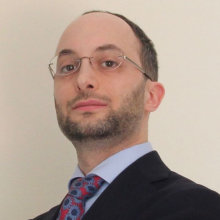
Jacopo Scarin
Research Fellow
He specialised in Chinese religion. During his doctoral studies, at the Chinese University of Hong Kong, he conducted a research on late imperial Daoism. His current research interests encompass two topics: the religiosity of the Chinese diaspora in Italy, with a focus on the Chinese Evangelicals; the patterns of conversion in late imperial China. He has just published his first book: “The Tongbai Palace and Its Daoist Communities: A History”
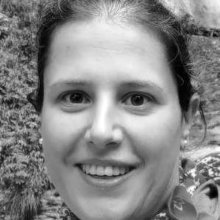
Benedetta Cotta
Research Fellow
Her current research focuses on "sustainable welfare" and the emergence of eco-social policies at European, national and local levels of governance.
Visiting Scholars
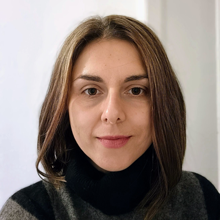
is a Junior Professor of Social Anthropology at the Institute for European Ethnology and Helmholtz Centre for Cultural Techniques, Humboldt-Universität zu Berlin. Between 2021 – 2025, she acts as the co-chair of the TRACTS COST Action on Traces as Research Agenda for Climate Change, Technology Studies and Social Justice. Her research focuses on material culture and critical heritage studies, exploring questions of history, memory, knowledge production, materiality, politics, and affect. During her stay at NICHE, Buchczyk will work on an ethnographic project exploring the complexities of safeguarding wetland heritage and the politics of knowledge in Sardinia. She will focus on a book chapter titled ‘Salvaging waterscapes, safeguarding intangible heritage?’ to be submitted to an edited volume on 'Critical Heritage and Social Justice'.

Rachel Gottesman
is a lecturer at the School of Architecture at the Bezalel Academy of Arts and Design in Jerusalem, where she also directs the Bezalel Institute for Spatial Studies (BISS). As a historian specializing in Environmental History, Mediterranean Studies, and Spatial Theory, her recent research explores historic landscape analysis through literary and visual sources and the interconnections between bio-cultural systems. Dr. Gottesman publishes both fiction and non-fiction in the fields of history, spatiality, architecture, and literature. She co-curated the Israeli Pavilion at the 17th Venice Architecture Biennale in 2021, serving as the chief writer and editor of the award-winning research catalog Land. Milk. Honey., which received the DAM Architectural Book Award. During her stay at NICHE, she will conduct comparative river studies in collaboration with the UNESCO Chair for Water Heritage, and Sustainable Development, and finalize her forthcoming book on the history of the Ayalon River, which flows from the Jerusalem mountains to Tel Aviv.
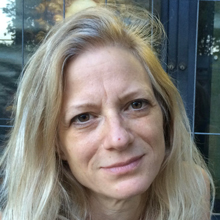
Ronit Yoeli-Tlalim is a Reader in the History Department at Goldsmiths, University of London. Her
research has dealt with the history of globalisation of medical knowledge, particularly along the Silk-Roads. Her recent book, ReOrienting Histories of Medicine: Encounters along the Silk Roads uses a number of case studies to illustrate how medical knowledge moved across cultural contact zones and spread across Eurasia. Next year she will take up a fellowship at the Institute of Advanced Studies, Princeton. During her time at NICHE she will explore some links between the history of global health and environmental humanities, and will work to extend research partnerships in support of future grant applications.
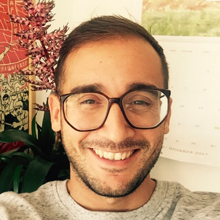
Andrea Pia
Department of Anthropology, London School of Economics and Political Science
Is completing the revisions on his book manuscript entitled Cutting the Massline: moving water and the political in rural China, forthcoming in the Water and Society series of John Hopkins University Press. The book, which covers almost a decade of research across various communities located on the Yunnan-Guizhou Plateau, tracks China’s technocratic responses to the country’s climate crisis and explores the political possibilities opened by the global march toward a water-altered future. During his visiting, Andrea will also collect material for Justice after Carbon, his new research project about the internationalisation of the Chinese hydropower industry, and work to extend research partnerships in support of future grant applications.
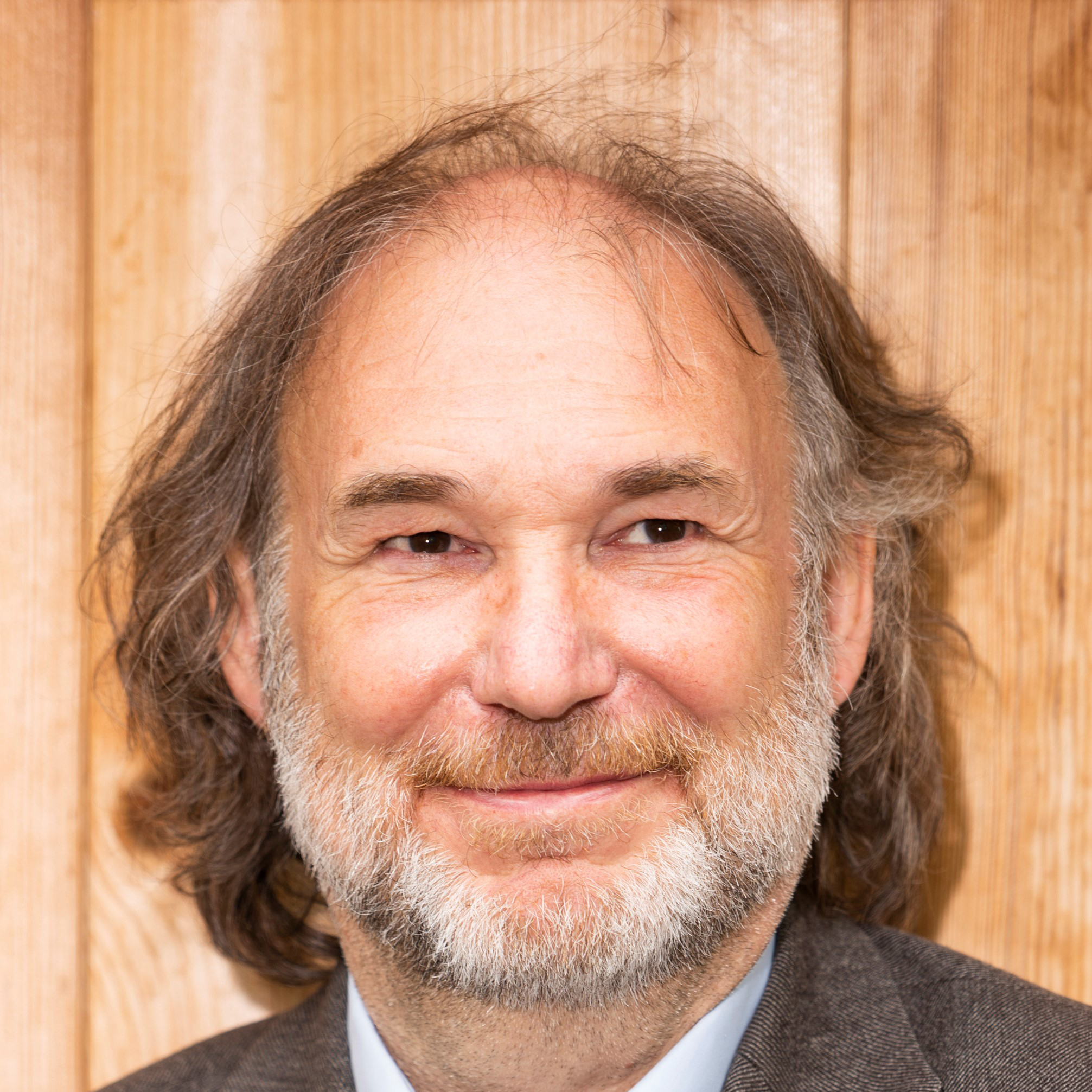
Christof Mauch
Director of the Rachel Carson Center for Environment and Society
Toxic Waters: Stories of a Wounded PlanetThis project comes out of a collaboration with Tallinn-based photographer Bernhard Lang who is known for his spectacular aerial photographs. Over the course of the last 20 years Lang has taken photos of ‘waters around the globe’: Industrial fish farms in Norway and the Philippines, irrigation plants in Kansas, wastewater from phosphate plants in Florida, polluted lagoons in the Baltic etc. Christof Mauch’s research will accompany, analyze and interpret Lang’s photography. His book-length study will be published with National Geographic Deutschland. Mauch will also work on a chapter titled “River City: Memphis Tennessee”; it looks at the Mississippi river as a source of life and death for people, flora and fauna in Memphis.
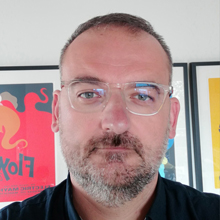
is a social theorist and an STS scholar with strong affiliations to the history and philosophy of biology and medicine. He is the author of three books, including Political Biology: Science and Social Values in Human Heredity from Eugenics to Epigenetics (Palgrave 2016: Winner of the Human Biology Association Book Award, 2020) and Impressionable Biologies: From the Archaeology of Plasticity to the Sociology of Epigenetics (Routledge, 2019), and other coedited volumes, among which the Palgrave Handbook of Biology and Society. He is currently Associate Professor in Sociology at the Alfred Deakin Institute (ADI) for Citizenship and Globalisation at Deakin University, Australia, where he was previously an Australian Research Council Future Fellow (2019-2023).

Veronica Strang
Oxford University’s School of Anthropology and Museum Ethnography
Professor Strang is an affiliate at Oxford University’s School of Anthropology and Museum Ethnography. She is a cultural anthropologist who has conducted ethnographic research in Australia, the UK and New Zealand. Her work is concerned with human-environmental relations, materiality, cultural landscapes, and – in particular – societies’ engagements with water. She has worked with UNESCO and the UN on water and sustainability issues and conducts research assisting indigenous communities’ land and water claims. Her work has contributed to debates on non-human rights, and she recently completed a major comparative study examining historical and contemporary beliefs about water deities and their capacities to illuminate different trajectories of development in human-environmental relationships. In 2019 she was elected as Fellow of the Academy of Social Sciences.
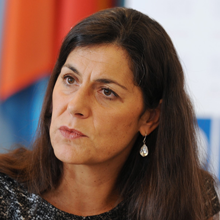
Former Executive Director of the Vienna-based International Press Institute (IPI) and currently IPI Fellow.
She is an expert in international journalism, press freedom and human rights. The focus of her research is on strategies to promote public interest media coverage of environmental issues, specifically looking how public and donor funding, including funds from trusts and foundations, can be distributed in a way that supports independent coverage of environmental stories; and what skills and knowledge journalists need to cover environmental stories accurately, fairly and reach the intended audiences.

Leon Wainwright
is Professor of Art History at The Open University (UK). His research has a transatlantic and transdisciplinary scope, and while at NICHE he will develop a line of Caribbean-focused research on the interrelationships between environmentalism and connectivity, addressing the cultural field, specifically the visual arts. As Caribbean communities try to cope with the multiple challenges of environmental change and geographical dispersal, the contemporary art community is playing a decisive role in mediating such responses, imagining alternatives and taking action. A recipient of the Philip Leverhulme Prize in the History of Art, he is the author of the books Timed Out: Art and the Transnational Caribbean (2011) and Phenomenal Difference: A Philosophy of Black British Art (2017). Together with Paul Wood and Charles Harrison he co-edited the latest volume in the successful series Art in Theory: An Anthology of Changing Ideas (2021).
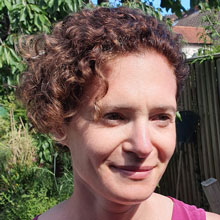
Anna Lora-Wainwright
Professor of the Human Geography of China, University of Oxford
During her visiting scholarship at NICHE she worked on co-authored journal article titled ‘Becoming Citizens through Citizen Science in China’, to be submitted to Science, Technology and Human Values. The article outlines the various ways in which student-volunteers develop “transformative potentials” (Brombal 2020), outlining such potentials in relation to their growing awareness of rural water quality challenges, the scientific complexities of evaluating water quality and its effects on health, and their growing awareness of the complex socio-political contexts within which water governance unfolds. This scholarship aimed at contributing to current debates on the possibilities of citizen participation in China, but also, more broadly, to decolonising approaches to citizenship and participation.

Dominic Hand
is a poet and writer based in the UK. His debut poetry book, Symbiont: 50 Sonnets (2020), was awarded an Eric Gregory Award by the UK Society of Authors in 2021. His second book, The Data Harvest (2023), consists of a cycle of poems exploring the ecological footprint of the digital revolution. Hand studied literature at Oriel College, Oxford, completed an MPhil at Clare College, Cambridge, and held a research fellowship at Yale University. He is now completing a DPhil on contemporary poetics at Merton College, Oxford. He is a visiting scholar at NICHE from January to March 2024, where he will be working on two projects: a sequence of Anthropocene eclogues, and a work of poetry about mapping and 'countermeasuring' the city of Venice at a time of ecological disruption.
Guest Researchers
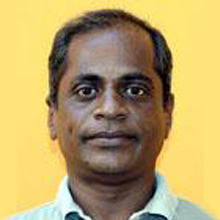
Senthil Babu Dhandapani
Researcher
is a historian of mathematics based at the French Institute of Pondicherry, in south India, where he is involved in studies concerning Nature, Knowledge and Labour. He is coordinating a research programme in the Social History of Vernacular Mathematical Practices in Medieval South India in collaboration with Chair, History and Philosophy of Mathematics at ETH, Zurich.
His book, Mathematics and Society: Numbers and Measures in early modern South India, was published by Oxford University Press in 2022. He is a member of the editorial board of the series, Verum Factum: Studies in Political Epistemology. He is a member of the Politically Mathematics Collective in India. He is recently affiliated with NICHE, Venice with the aim to develop curricular and public pedagogic resources on the theme of Water Work Landscapes.
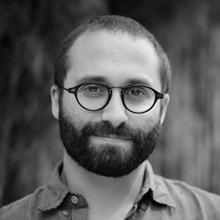
Eli Elinoff
Senior Lecturer Victoria University of Wellington (VUW), Cultural Anthropology, School of Social and Cultural Studies
Eli’s research examines the intersection between environmental and political transformations in Thailand. His book, Citizen Designs: City-making and Democracy in Northeastern Thailand (Hawaii, 2021) examines how the urban poor have used their houses to reimagine their city and citizenship simultaneously. He is also the co-editor (w/Tyson Vaughan) of Disastrous Times: Beyond Environmental Crisis in Urbanizing Asia (University of Pennsylvania Press), which proposes the notion of the “quotidian Anthropocene” as a lens through which to make sense of the everyday implications of planetary environmental change. He has published a range of pieces in venues like Anthropological Theory, Journal of the Royal Anthropological Institute, The New Mandala, Political and Legal Anthropology Review, and Cultural Anthropology Online. While at Niche he will be presenting a talk entitled “City Impermanent: Watery Speculations in Thailand’s Sinking Capital,” which draws from his ongoing research into urban ecologies of concrete in Thailand.
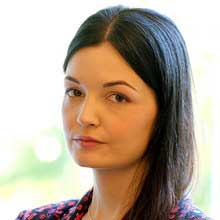
Noemi Quagliati
Is a Marie Sklodowska-Curie Postdoctoral Fellow at Ca' Foscari University of Venice, with the project Bird's-Eye Views of the Venetian Lagoon. Planetary Visions and Birdscapes of an Aquatic Ecosystem, and a member of the program GLOBAL_AT_VENICE - Research and Training for Global Challenges. She received a PhD in art history from Ludwig Maximilian University of Munich and the Rachel Carson Center for Environment and Society on the subject of landscape photography in WWI Germany. From 2021 to 2023, Noemi lectured on German eco-aesthetics at the Junior Year in Munich program (LMU and Wayne State University) and offered courses on North American photography and art at LMU’s Amerika-Institut. As a visiting scholar at the Research Institute for the History of Science and Technology of the Deutsches Museum, she collaborated on modernizing the museum’s historical aviation section by investigating the topic of aerial photography. Her research interests, which intertwine with the themes of NICHE's cluster Ecological Art Practices, include landscape and aerial iconography, nature and territorial photography, photo-optical technology for environmental applications, multisensory and eco-aesthetics, animal studies, material culture, and collective memory.
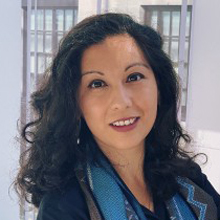
Ellan Spero
Instructor (Massachusetts Institute of Technology) and Co-Founder and Professor of the Practice (Station1)
is a historian of science and technology, with a background in fiber science and museum studies. Dr. Spero’s research focuses on the ways that people envision human progress through the systems, institutions, objectives, and narratives that they create. As a historian working at the intersection of technology, business, and higher education, Dr. Spero’s research explores narratives of progress, systems of production, academic-industrial ecosystems, and interactions between humans and material infrastructures. She is an instructor at the Massachusetts Institute of Technology (MIT) in the department of materials science and engineering. She is an academic entrepreneur, serving as co-founder and professor of the practice at Station1, a nonprofit higher education institution focused on a new inclusive and cross-disciplinary model of socially-directed science and technology education, research, and innovation. Dr. Spero serves on the Board of Directors of several non-profit institutions engaged in stewardship and accessibility of industrial and cultural heritage.
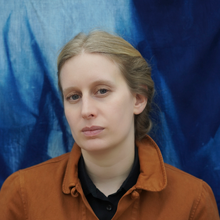
Sonia Levy is an artist whose work examines Western expansionist and extractivist logics while tending to critical forms of engagement with more- than-human worlds. Her practice investigates filmmaking as a device for site-based inquiries and interdisciplinary collaborations, fostering multiple perspectives to consider new worlds. She is the 2023-24 European Marine Board artist-in-residence, contributing to the UN Ocean Decade. In 2022, Levy was the selected artist for the S+T+ARTS4Water residency hosted by TBA21-Academy in Venice. Additionally, she was the commissioned artist in 2021 at Radar Loughborough and Aarhus University’s “Ecological Globalization Research Group.” Levy’s work has been screened and exhibited internationally, including Museo Thyssen, Museo CA2M, ICA London, Showroom London, Baltic Gateshead, ZKM Karlsruhe, Muséum d’Histoire Naturelle, Paris. Her work has been published by MIT Press and Thames & Hudson. Levy is currently an associate lecturer at the Royal College of Art, School of Architecture.
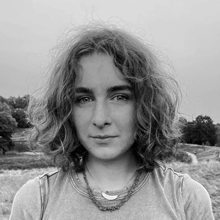
Chiara Famengo is a curator, archivist and researcher working at the intersection of art and ecology, mostly outside of gallery spaces and exhibition formats. Chiara is curator of the Venice Design Biennial public programme; creative producer of the Art Council England programme, Three Rivers; ecology researcher at the Bethnal Green Nature Reserve, Phytology; and collaborator of artist Sonia Levy. Chiara has been involved in art commissions and programming for La Wayaka Programme, Atacama Desert, Chile (2023); Can Serrat, Spain (2023); Royal College of Art, London (2022-2023); Luxemburg Pavilion, Venice Art Biennial, Venice (2022); NextDoorARI, Brisbane (2022); Open Data Institute, London (2022); Kate Howe Studio, London (2022); Gruppone, Salinas De Guaranda (2019). Chiara holds an MA at the Royal College of Art.
Staff (CESA)
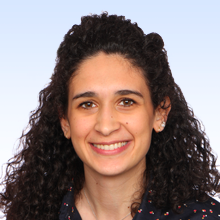
Anna Zerbini
Project manager
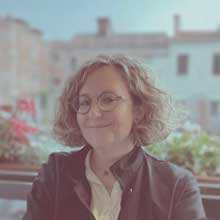
Giulia Brolese
Communication Officer

Beatriz Barbado Gutierrez
Administrative Officer
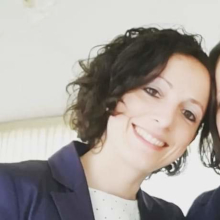
Alessandra Bonesso
Research facilitator
